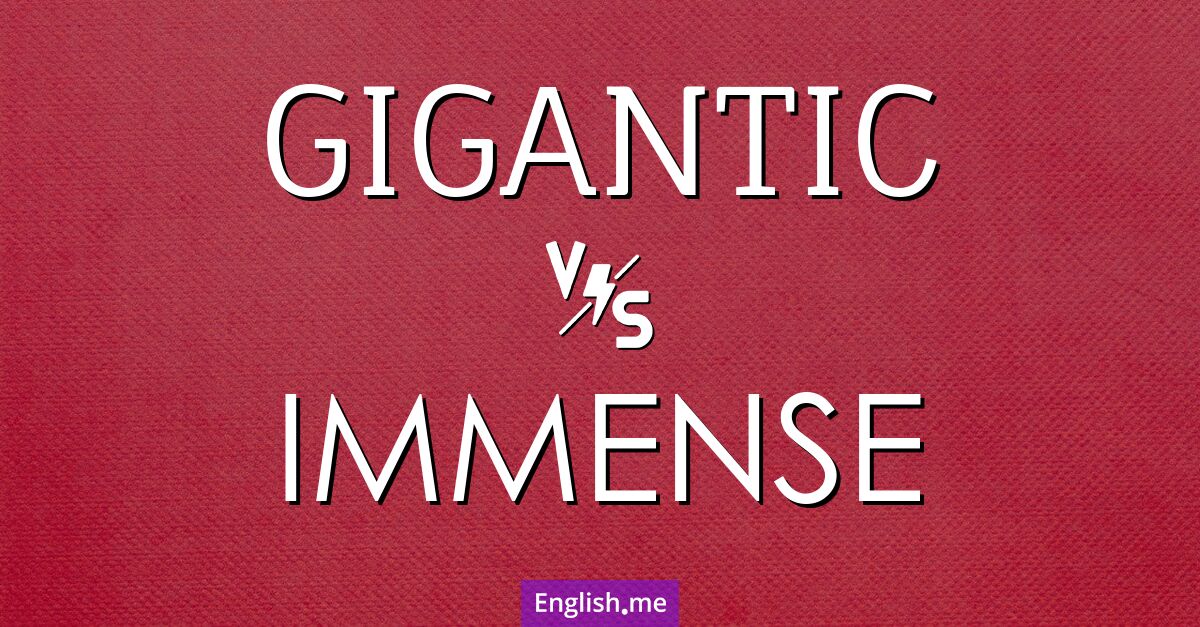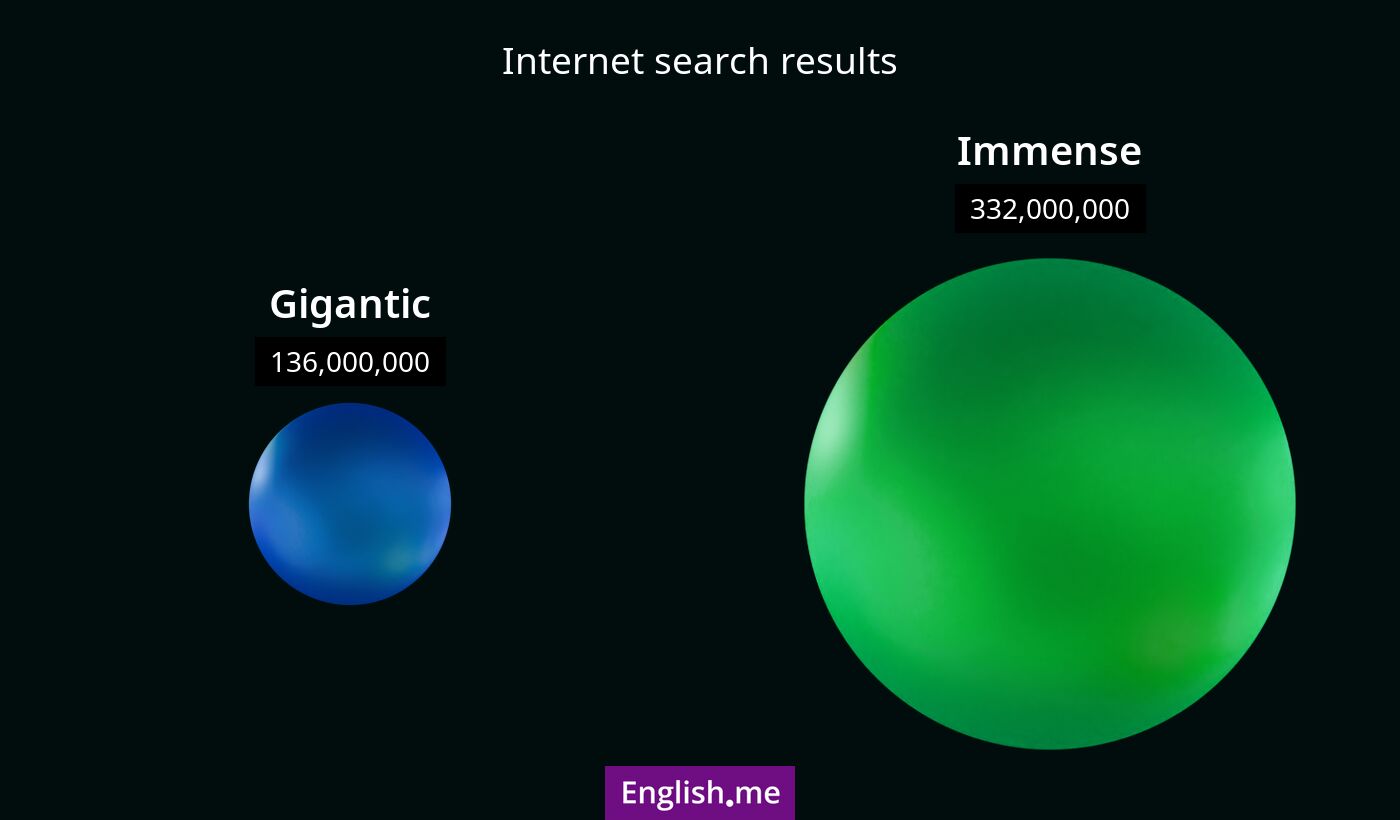Exploring the magnitude of "gigantic" vs. "immense"
Reviewed and edited by  Lloyd Cooper 26/10/2024, 01:11
Lloyd Cooper 26/10/2024, 01:11
English.me team member

 What is similar?
What is similar?
Both "gigantic" and "immense" are adjectives used to describe something that is extremely large or vast in size or extent. They are often used interchangeably to convey the sense of something being very large or imposing.
 What is different?
What is different?
While both words describe large size, "gigantic" has a more specific connotation implying something resembling a giant, often used for physical size. "Immense" conveys a vastness that may be more abstract, and can also refer to feelings or non-physical dimensions.
 Which one is more common?
Which one is more common?

 Examples of usage
Examples of usage
Gigantic- The gigantic statue towered over the landscape.
- He looked up at the gigantic skyscraper with awe.
- A gigantic wave crashed onto the shore.
- The immense forest stretched as far as the eye could see.
- She felt an immense sense of relief after the test.
- The project required an immense amount of effort and resources.

 English
English español
español française
française italiano
italiano deutsche
deutsche 日本語
日本語 polski
polski česky
česky svenska
svenska Türkçe
Türkçe Nederlands
Nederlands